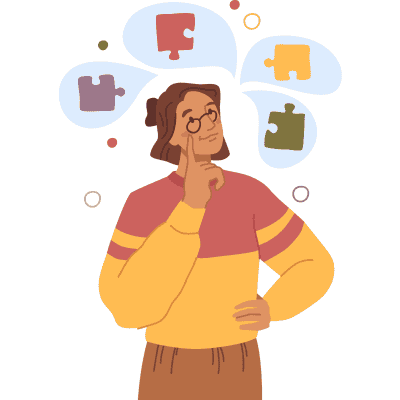Have you ever stopped to think about what makes your relationships tick? It’s like there’s an invisible crazy glue that holds our connections with others together, and a big part of that strong adhesive is love. But what really powers this machine of connection isn’t just the warm and fuzzies of love—it’s our core beliefs about what love is and what it should look like.

What Exactly Are Core Beliefs?
Let’s break it down. Core beliefs are the very lifeblood of how we see the world, ourselves, and others. They’re the deep-seated notions that we’ve picked up along the way from our experiences, culture, and upbringing. Think of them as the mental software running in the background of your mind, influencing your every thought, feeling, and action without you even realizing it.

Born from Experience
From the moment we come into this world, we’re like sponges—we absorb ideas about how things should be from our parents, our friends, the media, and our personal experiences. If you were cheered on as a kid, you might grow up with the belief that you can achieve anything. That’s a core belief! It shapes how you approach not just your goals but how you view challenges in relationships, too.

The Invisible Lenses
Imagine wearing a pair of glasses all the time, and these aren’t just any glasses. These are customized specs tinted with your core beliefs. Everything you see and everyone you interact with is colored by these lenses. If your glasses are tinted with the belief that “love is unconditional,” that’s going to affect how you treat your partner and what you expect from them.

Shifting Beliefs
Core beliefs aren’t set in stone, though! They’re more like shifting and eroding beach sands, changing over time as we grow up and learn new things. Sometimes, a big life event can shake up these sands like a strong gust of wind and make us reassess what we believe. This can be tough, but it’s also a chance to build new, stronger foundations for our relationships.

Why They Matter in Love
In matters of love in a romantic relationship, core beliefs are the “rules.” If you hold the belief that love means never being alone, you could be a stage-5 clinger, or if you think love should be effortless, you might dip the second things get tough. Understanding and occasionally updating your core beliefs can help you navigate relationships much better!
Core beliefs are our most deeply held expectations and convictions about ourselves, other people, and the entire world around us. They are the fundamental principles that we use to shape and understand our experiences and are often formed in childhood, influenced by our families, culture, societal norms, and personal experiences. They are the lens through which we see the world and can determine how we regard ourselves and others, our behaviors, and our reactions to situations.
Here’s a quick snapshot of the types of core beliefs:
- Beliefs about the self: These are the beliefs we hold about who we are, our worth, our abilities, and our value as a person. For example, “I am a capable person,” or “I am unworthy or less than.”
- Beliefs about others: These encompass our expectations and presumptions about how people usually act and what motivates them. For instance, “People are, for the most part, trustworthy,” or “Everyone only cares about themselves.”
- Beliefs about the world: These are our ideas about how the world works, the fairness of life, and what we can expect from our surroundings. Examples could be, “The world is a scary place,” or “Life is bursting with opportunities.”
These core beliefs can be positive or negative, and they can greatly influence our well-being and the quality of our relationships. If negative core beliefs are challenged and reframed in a more positive light, it can lead to better overall mental health and much more fulfilling relationships!
The Foundation We’re Built On
Picture your core beliefs as the foundation of a building—if you believe love means being a ride or die, your relationships might resemble a quaint, cozy cottage—strong and warm. But if you think love means never saying no, you might be placing your relationship bricks on a shaky, unstable foundation that could collapse at any given moment.

Love Is a Two-Way Street
Now, let’s talk about give and take. If we believe that love is all about giving, we might forget that it’s okay to receive, too. Relationships are a mixture of both— believing that you deserve as much as you give sets the stage for healthier, happier, and more balanced relationships.
Boundaries Are Your BFFs
Speaking of balance, let’s talk about boundaries. Believing in love doesn’t mean you let someone overstep your limits. Good fences make good neighbors and good boundaries make good partners. When we believe that our feelings and needs are important, we teach others to respect them, which actually makes love stronger.

The Mirror of Love
Here’s something interesting you may not know: our relationships often mirror our beliefs about ourselves. If you believe you’re the end-all-be-all, you’ll likely attract people who treat you that way. But if you think you don’t deserve much, you might settle for relationships that aren’t big on mutual love and respect.

Changing the Blueprint
The best part? We can change our core beliefs. If your relationship foundation feels a bit drafty, you can always tear it down and rebuild—learning new ways to think about and perceive love can lead to stronger, happier connections.
Religion as a Core Belief: The Heart of Many Matters
When we talk about what shapes us to our very core, for a lot of people, religion is the big one. It’s not just a set of traditions or a book of sacred texts; it’s a moral compass that guides followers through the tough times in life and the bright ones as well.

A Guiding Force
For believers, religion can be the true North Star for how to live, love, and relate to others. It provides answers to the big-ticket questions: Why are we here? How should we treat others? What’s our ultimate purpose?

Shared Values
Religious communities offer people a true sense of belonging and a shared set of values that bond them together. This collective belief system can create a strong foundation for building relationships and connecting with others on a genuine and profound level.

Ethics and Morals
Both the ethical and moral codes of many religions fashion the behavior of followers. Think about the “golden rule” that faiths tout: Treat others as you want to be treated. This rule alone heavily influences how people in religious communities engage with one another.

Respecting Differences
In a world riddled with a large diversity of beliefs, understanding that religion can be a core belief for many helps breed mutual respect—it reminds us that while we may differ in our faiths, at the heart of many religions is a search for understanding, community, and love.
Takeaways
What’s the true value of love in our lives? Well, it’s priceless, but the pricelessness is fostered by what we believe about it. Our core beliefs are the designers of our relationships—by understanding and sometimes tweaking said beliefs, we can create a love that’s not only strong but also fair, respectful, and super fulfilling.
Love isn’t just a feeling; it’s a belief system, kind of like a GPS, to how we connect with others. Think of it as your personal relationship sat-nav; knowing the coordinates and where they’re taking you can make a difference in relationships!
